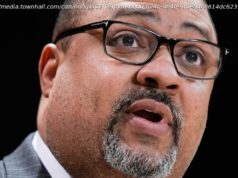The island has been hammered by a financial crisis and a hurricane. Now, tens of thousands of people are at risk of losing their homes to foreclosure.
Puerto Rico has had an awful decade — and it’s about to get worse.
First came a brutal 10-year recession and financial crisis that drove businesses from this island and left 44 percent of the population impoverished. Then, in September, Hurricane Maria, a powerful Category 4 storm, shredded buildings, wrecked the electrical power grid and possibly led to more than 1,000 deaths.
Now Puerto Rico is bracing for another blow: a housing meltdown that could far surpass the worst of the foreclosure crisis that devastated Phoenix, Las Vegas, Southern California and South Florida in the past decade. If the current numbers hold, Puerto Rico is headed for a foreclosure epidemic that could rival what happened in Detroit, where abandoned homes became almost as plentiful as occupied ones.
About one-third of the island’s 425,000 homeowners are behind on their mortgage payments to banks and Wall Street firms that previously bought up distressed mortgages. Tens of thousands have not made payments for months. Some 90,000 borrowers became delinquent as a consequence of Hurricane Maria, according to Black Knight Inc., a data firm formerly known as Black Knight Financial Services.
Puerto Rico’s 35 percent foreclosure and delinquency rate is more than double the 14.4 percent national rate during the depths of the housing implosion in January 2010. And there is no prospect of the problem’s solving itself or quickly.
“If there is no income, the people cannot make payments,” said Ricardo Ramos-González, coordinator of a consumer legal aid clinic at the University of Puerto Rico School of Law. “Thousands have lost their jobs, thousands of small business have closed, and thousands more have left the country.”
At the moment, dealing with a mortgage lender about a missed payment may be a distant concern for many of the 3.4 million people in Puerto Rico. They are literally still picking up the pieces, struggling to live without electricity or trying to get insurance companies to pay claims to repair their homes. More than 100,000 people are believed to have left to go live with friends and family on the mainland.
Residents won a reprieve when the federal government imposed a temporary moratorium on foreclosures, which stops banks and investors that bought mortgages at cut-rate prices from evicting delinquent borrowers or starting new foreclosures. Many lenders also have agreed to waive missed payments during the moratorium.
But that moratorium is scheduled to expire in early 2018, and lawyers and housing counselors expect that to trigger a surge in foreclosures.
“We will see an avalanche of cases,” said Josue Castellanos-Otero, a lawyer, who said many of his housing clients were focused on getting insurance companies to pay to fix their damaged homes.
Repairing the housing market in Puerto Rico will take more than rebuilding storm-damaged homes and the electrical grid. It will involve banks and investors reworking tens of thousands of troubled mortgages and waiving missed payments.
The looming housing crisis threatens to upend the social structure on the island and means the aftereffects of the storm will be felt for years to come. It could be particularly painful for the elderly, who often have limited incomes and whose homes tend to be their most valuable assets.
Even before the storm, Puerto Rico was mired in a severe housing slump. Home prices over the past decade have fallen by 25 percent, and lenders have foreclosed or filed to foreclose on 60,000 home loans, according to the Puerto Rico state court system. Last year, there were 7,682 court-ordered foreclosures — a roughly 33 percent increase from 2007. Some 13,000 foreclosure cases are pending, Black Knight estimates.
And that is how Wall Street got into the mix.
In the past several years, a slew of bargain-hunting banks, hedge funds and other financial institutions descended on Puerto Rico to scoop up distressed residential mortgages and foreclosed homes. The list includes big investment banks like Credit Suisse and Goldman Sachs and smaller boutiques including Perella Weinberg and an affiliate of the private-equity firm TPG Capital, which is an investor in a Cayman Islands mortgage investment company.
The recent devastation is likely to further depress housing prices. That’s partly because the “mass exodus” of Puerto Ricans going to the continental United States means the demand for housing “has gone down substantially,” said Laurie Goodman, director of the Urban Institute’s Housing Finance Policy Center.
If normal patterns held, that would be bad news for the investment firms that gambled on Puerto Rico’s housing market. But normal patterns don’t necessarily apply here, given that some mortgages are guaranteed by a federal insurance fund.
Consider Blackstone Group, the big private equity firm. Blackstone owns a company, Finance of America Reverse, that specializes in a type of home loan called a reverse mortgage, which is guaranteed by the federal government.
The loans are a way for people 62 or older to tap the equity they have built up in their homes; the principal and interest are payable when the borrower dies. The loans require borrowers to keep paying taxes and homeowner’s insurance on a property. Reverse mortgages have a history of abuse. Lenders often don’t fully explain the loans’ terms.
There are 10,000 reverse mortgages in Puerto Rico, and Finance of America controls about 40 percent of the market, according to the Department of Housing and Urban Development, which oversees the government insurance fund that guarantees a lender will be repaid on a reverse mortgage.
If Finance of America sells a foreclosed home for less than the value of the mortgage, the firm can make a claim to the insurance fund to make up the difference. In that case, taxpayers would be on the hook
Court records show that the Blackstone-controlled company is aggressive in its pursuit of — and foreclosures on — borrowers.
Since 2015, Finance of America and a predecessor firm have filed 500 foreclosures in federal court.
José González-López “feels harassed” after Finance of America initiated a foreclosure case against him for the third time in two years, according to his lawyer, Juan Carlos Cancio-Reichard. He said the first two cases had been dismissed after the lender incorrectly claimed Mr. González-López, 73, had not paid for homeowner’s insurance on the property.
Now Finance of America has claimed Mr. González-López did not pay property taxes on the house — something the borrower disputes. Mr. Cancio-Reichard said his client had recently gotten the Puerto Rico Treasury Department to certify there were no unpaid taxes on his account. The lawyer is asking Finance of America’s lawyer to voluntarily dismiss the case.
“José thinks they want to get him out of the house,” Mr. Cancio-Reichard said.
Sara Sefcovic, a Finance of America spokeswoman, said the firm could not speak about specific cases, but “foreclosure is a last resort for our company.”
She added that the firm is “required to follow federal guidelines for this program and have virtually no discretion over whether or not to initiate a foreclosure proceeding.”
To file a foreclosure for any reason other than the death of the borrower, a reverse mortgage lender must get approval from an outside mortgage-servicing firm working for the Department of Housing and Urban Development.






